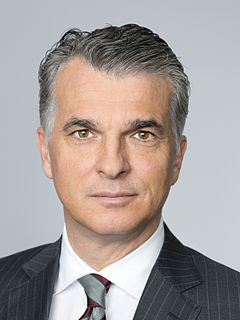A Quote by Mark Pincus
I was in banking because it was high-paying, intense, a real meritocracy, and the afterwork part was fun, but I found everything to do with banking so boring.
Related Quotes
Innovation has stalled in the banking industry. While the rest of the world is in the digital age, banking remains stagnant. We are here to change this and bring banking to the 21st century. We will ensure our customers feel involved in the progress of this bank and are offering them a truly enjoyable banking experience – different from anything they have experienced before.
Italy spills over to everything. Italy is a huge banking system. It has been the major banking system in Eastern Europe. It's worked with Austria's banking system. There's all sorts of interplays there. So it's not the PIIGS one should worry about. Germany hasn't even begun falling yet. And when Germany falls, and it will, that's when the panic begins to set in.
Repeal the entire Banking Act of 1933, and Austrian School economists will cheer, especially if the current system were replaced by a 100%-reserve competitive banking with no central bank. That banking reform would give us a sound money system, meaning no more business cycle, bailouts, or inflation.
So perhaps the most worrying single remark made by a responsible banking official during the current crisis came from Jochen Sanio, the head of Germany's banking regulator BaFin. He warned on Aug. 1 that his country could be facing the worst banking crisis since 1931 - a reference to the collapse of Austria's Kredit Anstalt, which provoked a wave of bank failures across Europe.


































